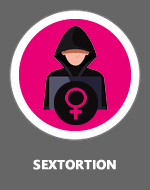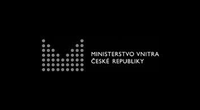Support us
Support our activities and help children and adults in need. For 15 years we have been helping children and adults solve their problems online. Get involved too! Every help counts! Just click on the DONATE button.Other articles
 Artificial intelligence (AI) is becoming an increasingly significant part of our daily lives. Technologies utilizing AI can be found in our mobile phones, computers, internet search engines, social networks, and even in household appliances. We also frequently encounter AI-generated products—articles, images, photographs, or videos—on the internet.
Artificial intelligence (AI) is becoming an increasingly significant part of our daily lives. Technologies utilizing AI can be found in our mobile phones, computers, internet search engines, social networks, and even in household appliances. We also frequently encounter AI-generated products—articles, images, photographs, or videos—on the internet.
 FOPO (Fear of Other People's Opinions) is a phenomenon that refers to the fear of what others think of us. This fear can significantly affect our decision-making, behavior, and overall well-being. Nowadays, when we are constantly exposed to records of other people's lives through social media, FOPO is very common.
FOPO (Fear of Other People's Opinions) is a phenomenon that refers to the fear of what others think of us. This fear can significantly affect our decision-making, behavior, and overall well-being. Nowadays, when we are constantly exposed to records of other people's lives through social media, FOPO is very common.
 Digital addiction, also known as netolism, is a phenomenon characterized by excessive and uncontrolled use of digital devices and the internet. This issue is becoming increasingly common across all age groups. This article focuses on defining digital addiction, its symptoms, impacts on different groups of people, and strategies for preventing and managing this problem.
Digital addiction, also known as netolism, is a phenomenon characterized by excessive and uncontrolled use of digital devices and the internet. This issue is becoming increasingly common across all age groups. This article focuses on defining digital addiction, its symptoms, impacts on different groups of people, and strategies for preventing and managing this problem.
 In the digital age, where social media and online discussions play a crucial role in shaping public opinion, terms like "troll" and "troll farm" have become a common part of our vocabulary. Troll farms are organizations or groups that coordinate the spread of disinformation and manipulate online discussions to achieve political, economic, or social goals. In today's article, we summarize how they work and why they are dangerous.
In the digital age, where social media and online discussions play a crucial role in shaping public opinion, terms like "troll" and "troll farm" have become a common part of our vocabulary. Troll farms are organizations or groups that coordinate the spread of disinformation and manipulate online discussions to achieve political, economic, or social goals. In today's article, we summarize how they work and why they are dangerous.
Quishing is a combination of the words "QR code" and "phishing". It is a sophisticated type of phishing attack that uses QR codes to deceive users and obtain their sensitive information. QR codes are commonly used for quick access to websites or to obtain various information using smartphones.
Ocenění projektu E-Bezpečí

KYBER Cena 2023
(1. místo)

Nejlepší projekt prevence kriminality na místní úrovni 2023
(1. místo)

Evropská cena prevence kriminality 2015
(1. místo)

KYBER Cena 2023
(1. místo)

Nejlepší projekt prevence kriminality na místní úrovni 2023
(1. místo)

Evropská cena prevence kriminality 2015
(1. místo)
E-BEZPEČÍ: AI CHATBOT

xAhoj, jsem chatovací robot projektu E-Bezpečí a mohu ti pomoci zodpovědět základní otázky a vyřešit tvé problémy. Zvol si z nabídky, nebo svůj dotaz napiš přímo do chatu.
MÁM PROBLÉM
ZAJÍMÁ MĚ VZDĚLÁVÁNÍ
ZAJÍMAJÍ MĚ TISKOVINY






























